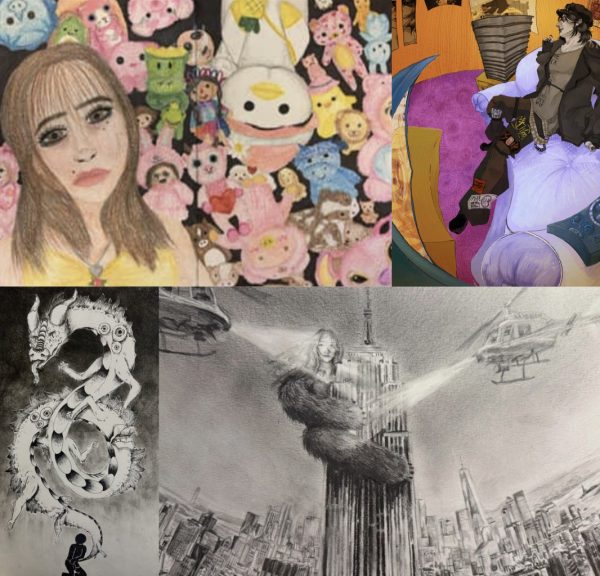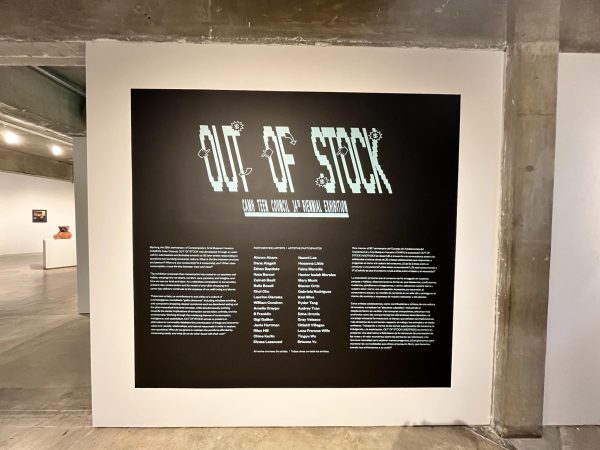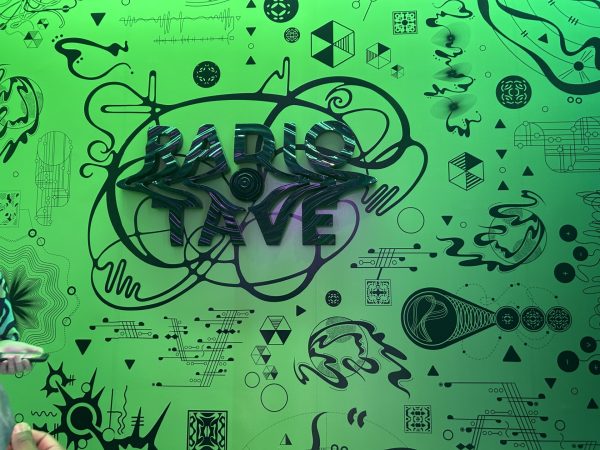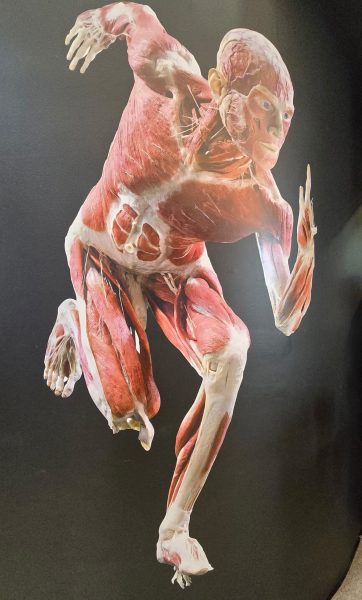The Assignment is a book every teen should read, regardless of religion
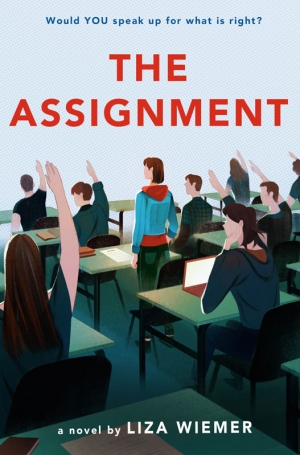
Book Cover, The Assignment by Liza Wiemer
Major Spoiler Warning for The Assignment
“Would YOU speak up for what is right?” The question stands out, even in small font, on the front cover of The Assignment, written by Liza Wiemer.
The Assignment is a book that details an assignment that should never be given and encourages people to speak up along the way. Logan March and Cade Crawford navigate antisemitism, activism, and hate in a way no student should ever have to. Their bravery throughout the book is proven time and time again. Even the side characters find their outstanding roles and voices in the story, taking the readers through a rollercoaster of their own. Although the book was published in 2020, the elements detailing Logan and Cade’s story are still relevant to this day, especially following Kanye West’s recent antisemitic speech and actions.
Liza Wiemer wrote The Assignment based on a true story, which took place in Oswego, NY. Wiemer had been visiting New York to promote and talk about her debut, named Hello?—and an assignment very similar to the one in Wiemer’s story was assigned in the small town of Oswego. Wiemer met the two teens who fought against it. The Assignment ended up winning several awards, one of which was the 2021 Sydney Taylor Notable Book award. Wiemer had been in disbelief that an assignment promoting Holocaust denial and antisemitism was allowed that year (2016), yet there are still similar assignments being assigned in 2022. In addition, antisemitism has been increasing recently, with two major celebrities tweeting antisemitic remarks.
During October, Ye (formerly known as Kanye West) made several antisemitic remarks that cost him his partnership with Adidas, and last week, Kyrie Irving defended his decision to promote an antisemitic movie that cost him playing in games for the Brooklyn Nets and his partnership with Nike. Now more than ever, a book like The Assignment is important and relevant to the conversation of antisemitism and Holocaust denial in the United States.
In The Assignment, the two main characters, Logan and Cade, are assigned a debate in their favorite teacher’s class in which everyone is required to recreate the Wannsee Conference in favor of the Nazis. The premise of the assignment was disappointing, yet not surprising. The Wannsee Conference was the debate in which senior Nazi officials discussed the Final Solution to the Jewish Question, which was the plan for extermination of Jewish people in Germany. Logan and Cade both immediately expressed a negative point of view on the assignment and planned to refuse to participate. This immediately sets up the fast pacing of the novel, introducing the conflict starting from the first page.
Logan and Cade knew in their hearts that this assignment felt off, yet they hesitated to speak up at first. The hesitation is all too familiar, even when it comes to speaking out about unrelated topics. I felt seen and reflected in both characters, but especially in Cade. He had a connection to Judaism that he didn’t explore further until later in the book, but it was still very easy to draw parallels between his story and mine. Besides Cade, Daniel is a close second for the character whose story is extremely similar to mine. Daniel is a side character who notices the struggles of Logan and Cade and silently joins their protest and outcry. Daniel feels like a special character to me because although he is scared of the repercussions of speaking out, his situation is vastly different from everyone else’s. The parallel drawn between him getting bullied because of his gay identity and Logan and Cade getting bullied for speaking out is the string that sticks out, tying together the story.
Other than the encouragement to speak out, the representation of Judaism in the book is also extremely important to Jewish teens like me. This book was what 8th-grade me would have loved to see, which is why I loved it so much. As I realized back then that antisemitism can and does happen everywhere, I believe that a story like Logan and Cade’s would have made an extremely strong impact on me and my perspective on antisemitism.
The teacher that assigned the debate, Mr. Bartley, defends his assignment, saying that it is important to understand the thought process of the Nazis who debated the Final Solution. However, one student takes this literally and he “stands up and snaps his feet together. He lifts his right arm and salutes like a Nazi. ‘Heil Hitler,’ he calls out” (Wiemer 10). This was the first time I had to put the book down. All I could think about were the posts on social media calling students out for performing Nazi salutes in their schools and classrooms, and the students not getting reprimanded for it. The reality in the book is so important to highlight and talk about as the conversation surrounding antisemitism continues.
Later on in the book, Logan’s locker is vandalized with “pictures and sticky notes filled with blood red swastikas and hateful words” (Wiemer 152). This was another notable moment where I had to put the book down. The shock of the student body, Logan, and Cade upon finding the surprise in Logan’s locker reminded me of a dinner conversation with my family, where I found out that someone drew a swastika in the bathroom of my brother’s elementary school without knowing the implications of their actions. The suspense kept convincing me to pick the book back up, as Logan and Cade always managed to find the most logical solutions to problems that should have never existed.
Logan and Cade’s active outcry against the assignment is repeated and emphasized in every chapter. They talked to Mr. Bartley, took it to the principal, took it to the local newspaper, and eventually, their outcry went viral. Logan and Cade took every possible action to ensure that the antisemitic debate would be canceled. The closest adults in their lives are behind them and support them, with Logan’s father saying, “I will support you and Cade in every way I can” (Wiemer 106) and Cade’s mother saying, “You’re Granite. Steel. Titanium. You don’t allow any of that hate to get through. You understand?” and “What you said to the reporter showed tremendous dignity and respect. Let that be your guide. You and Logan must be together on this, and if you need guidance, you can turn to us” (Wiemer 144-145). Logan and Cade never give up, which I found extremely admirable. I found myself enjoying this rollercoaster of events, and the plan they put into action found its way into occupying my brain. The courage displayed by Cade and Logan and the support of their parents is deliberately written in a way that encourages the reader to find their own courage to stand up to an antisemitic assignment at their school and antisemitism in their communities.
The writing style of the story really emphasized the intertwining of Logan, Cade, and other side characters’ stories in regard to the assignment given out. In every chapter, the book mainly switched points of view between five characters: Logan, Cade, Mason, Heather, and Daniel. There are also chapters of text conversations, social media comments, and phone conversations, which provide important context to the advancement of the plot. The chapters with Logan and Cade are in first-person, while the rest of the characters’ points of view are in third-person. This makes their stories much more interesting, since sometimes the first-person point of view does not take into consideration certain characteristics of the characters. Mason’s father is the coach of the school’s hockey team, and he is implied to be abusive. The players on the hockey team also bully him, and although he wants to speak out, he is scared of facing repercussions from it. Specifically, the quotes “[The hockey team players] trashed Mason, taunted him, told him he was gay like Daniel Riggs” and “‘Keep the boys focused on the game. That’s it. Besides, this never would’ve happened if you had played better, if you hadn’t missed that goal…’ He went on and on picking Mason apart until Mason wanted to shrink into his chair just like his mother did when the criticism was aimed at her.” stood out to me because they make Mason’s character more real in a way, and give readers who are also scared of the repercussions of speaking out a character to relate to. Heather is similar to Mason in the way that she is also scared of the repercussions of speaking out because of her family life, but in the end, she finds her voice and joins Logan and Cade with full support.
At the end of the story, a major plot twist occurs. Cade finds out that his grandparents were actually Jewish, but concerned for their safety, they pretended to be Christian. The twist was the most shocking and unexpected part of the book, yet it made his story that much more relatable.
There were tears streaming down my cheeks and a smile plastered on my face as all of the hard work done by Logan and Cade turned out to accomplish huge strides for themselves and for their community. I laughed, I cried, and I cheered for the characters throughout the entire book.
I had the privilege of attending a book fair presentation where Wiemer and another Jewish author, Samantha A. Vinokor-Meinrath, presented their books and talked about antisemitism to Jewish teens. Some of the topics that were talked about included the connotation of the word Jew vs. the word Jewish, the importance of tone, Jewish and non-Jewish activism against antisemitism, and our own journeys as Jewish people. Liza’s presentation just made the book come to life more, and I saw as the other teens in the room resonated with the journey taken by Logan and Cade.
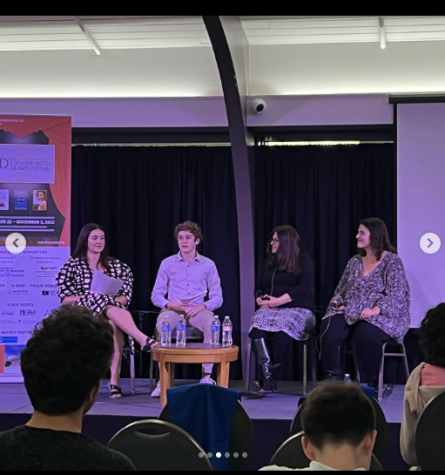
After the presentation, the book fair ran out of copies of The Assignment, and the line for the author signing was extremely long. As more people speak out against antisemitism in the United States, it is important to remember that there are many actions that can be considered antisemitic, whether it would be an assignment that defends Nazis or painting swastikas. When faced with the assignment and hatred, the courage of the two teens in The Assignment proves to readers that if they witness antisemitism and other forms of hatred in their lives, they too can gather up the courage and stand up for what they believe in.
Relating to antisemitism in today’s society, there was rightful massive backlash against the antisemitism of celebrities like Ye and Kyrie Irving. The Tweet that stood out from Ye stated that there were plans to “[go] death con 3 on Jewish people” and that “[he] can’t be antisemitic because black people are actually Jew[ish] also.” Meanwhile, from Irving, the tweet that stood out promoted a movie named Hebrews to Negroes: Wake Up Black America, which promoted antisemitic theories. A book like The Assignment is massively important as teens grow up and start noticing that there is a growth of hatred in our society, and start to learn how to cope with it.
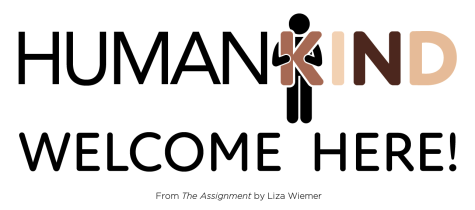
The relevancy of the story, the compelling plot, the relatable characters, and the accurate Jewish representation all tie together to make this book one of the most impactful books I’ve ever read. I give this book 5/5 stars because, while being the most unique book I’ve ever read, it still keeps the reality of what’s going on in the world to make it more digestible to an overwhelmed brain. The book is about 300 pages long, yet it only took me two days to finish reading. It’s an easy yet powerful read. My main motto with books is “if it makes me cry, it’s automatically a good book”, and the amount of times I’ve cried while reading this book means it’s just that extraordinary.
Your donation will support the student journalists of Carnegie Vanguard High School. Your contribution will allow us to cover our annual website hosting costs and fund field trips, competition fees, and equipment. We appreciate your support!
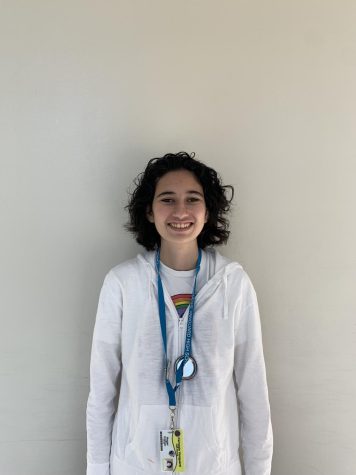
Hagar enjoys expressing herself through writing, but also through admiration of the fine arts as a whole. She sees it as a way to show how she is feeling...

